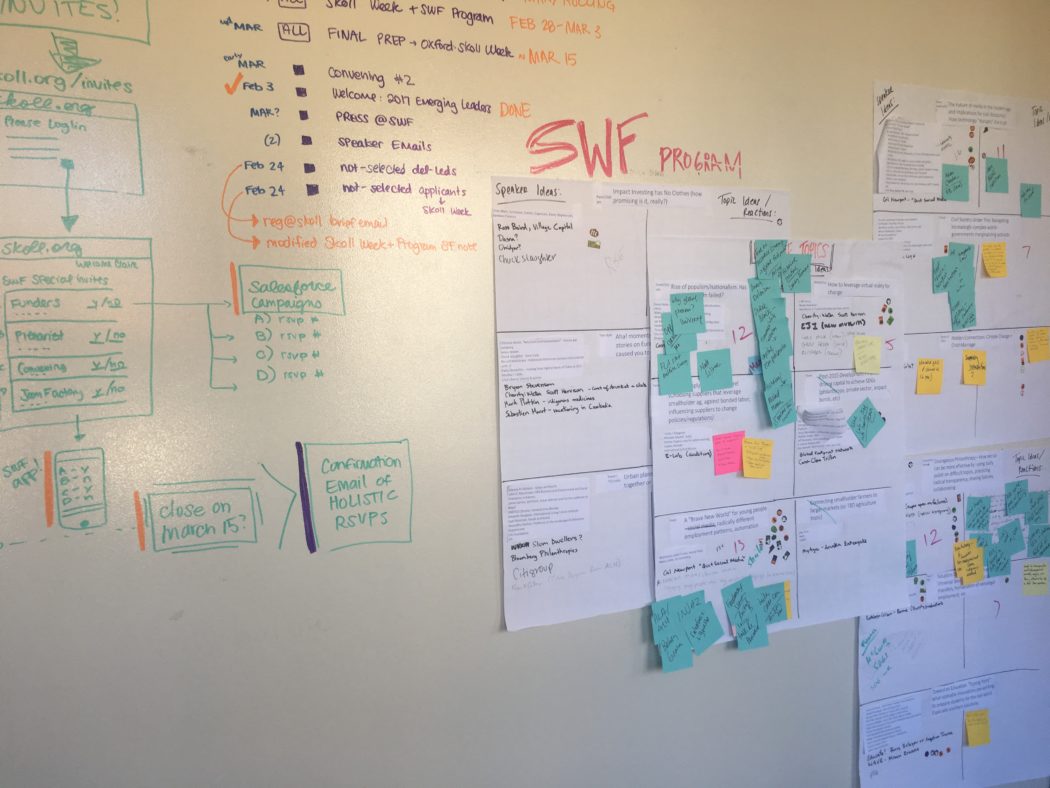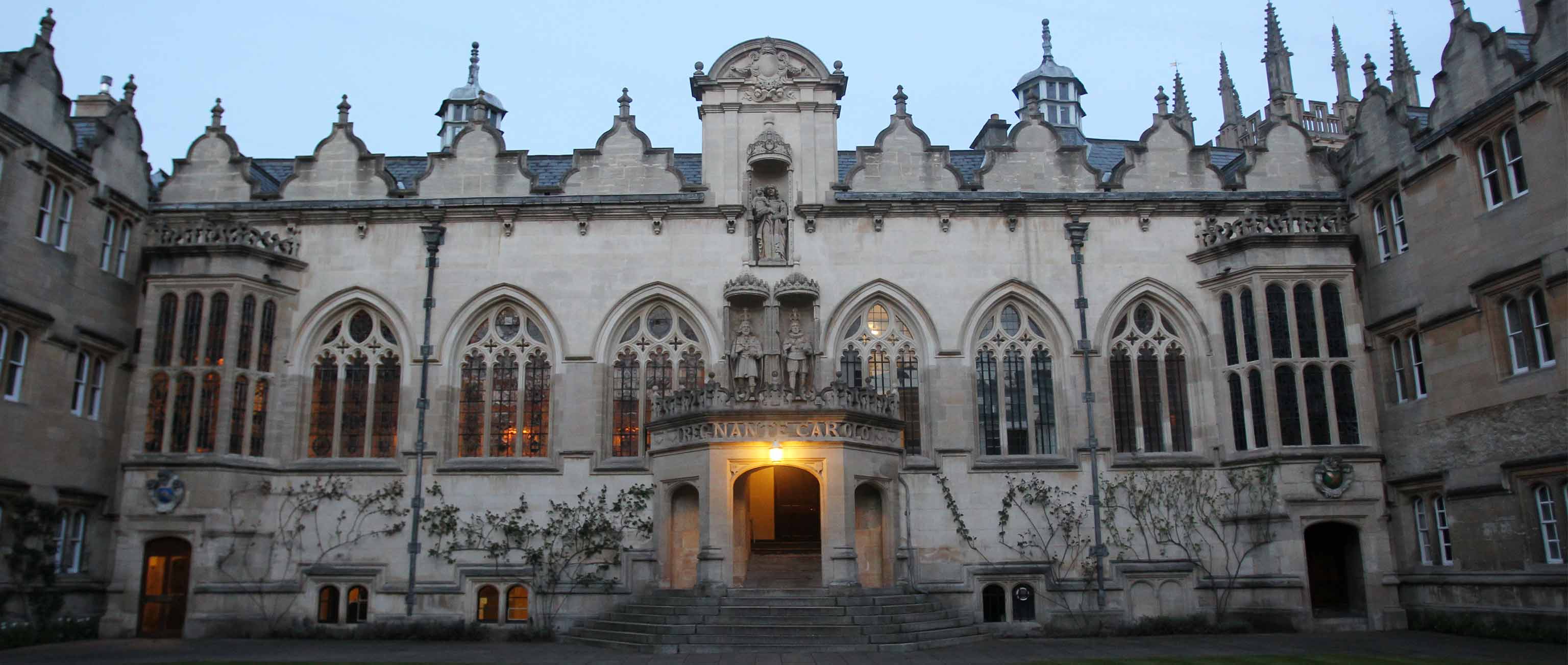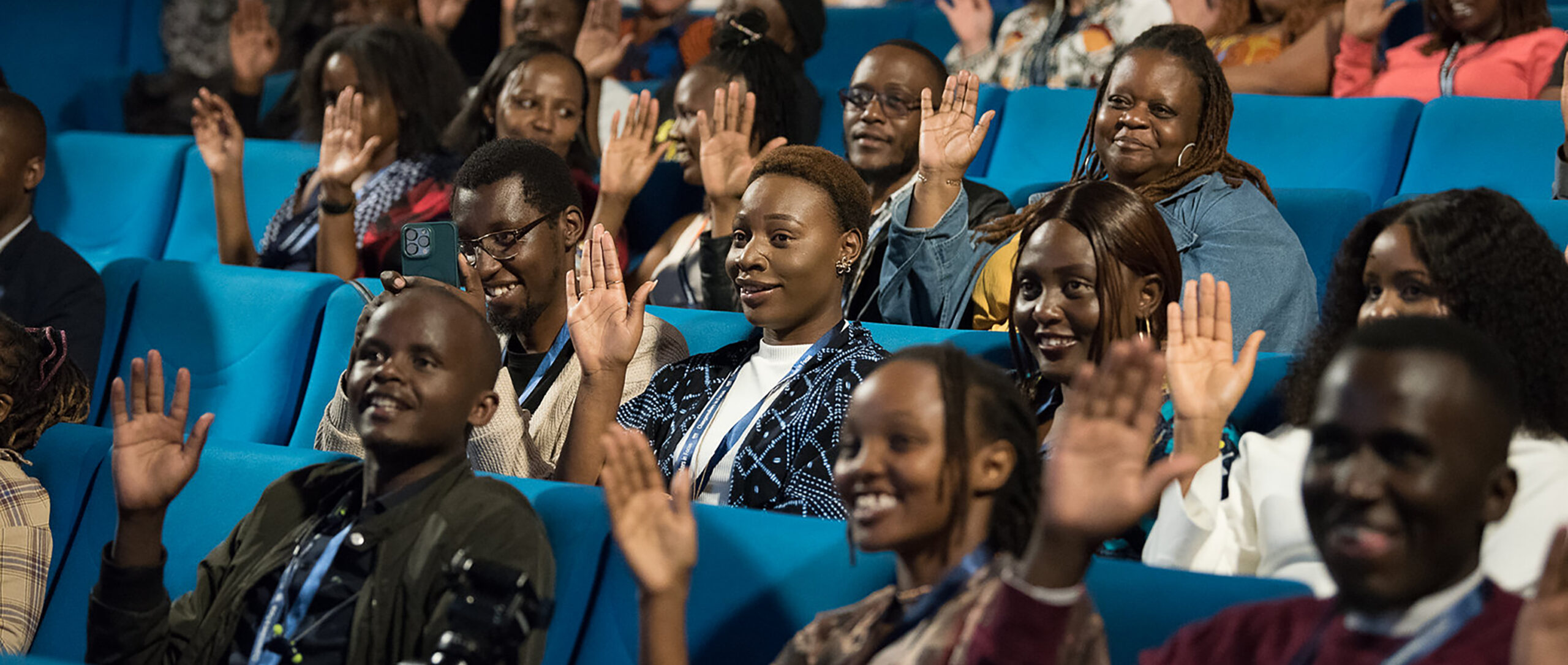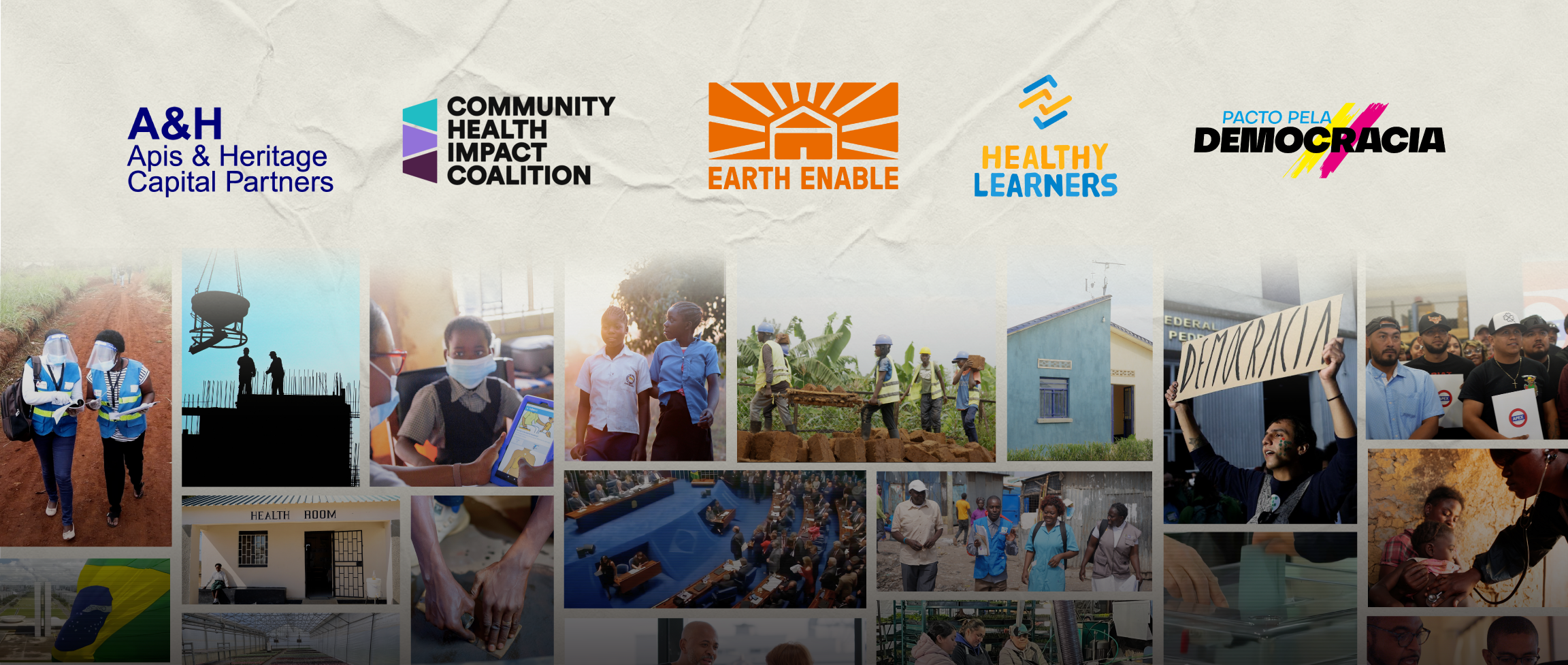Behind the Scenes of Skoll World Forum Programming: Q&A with Jessica Fleuti
Curating the programming of the annual Skoll World Forum is a monumental undertaking. Planning for the next year begins soon after the delegates leave Oxford, and often is ongoing right up until Skoll Week begins. It’s a giant puzzle with lots of moving parts, whiteboard brainstorms, design thinking workshops, and walls speckled with post-it notes.
Forum delegates enjoy a productive and provocative week, thanks to plenty of thoughtful consideration of how all those pieces can fit together. To pull back the curtain a bit on the process, Jessica Fleuti, curator of the Skoll World Forums, sat down with Zach Slobig, Skoll Foundation writer and editor for a quick chat.
Zach Slobig: The Foundation decided on the Forum theme, Fault Lines: Creating Common Ground, back in the fall of 2016. Tell me a bit about what informed that process?
Jessica Fleuti: Well, this was before the U.S election, but in the wake of Brexit and the Colombia referendum, and as always we’re paying close attention to the dominant conversations around social progress. There was already clear indication of deepening rifts within countries and the need for thoughtful dialogue across those divides. We listen closely to what our community tells us are their priority concerns and what they hope to accomplish at the convening.
This year, the process was also informed by an effort of intelligence gathering we led last summer—a series of surveys and interviews—with our network to find notable global trends that aren’t receiving adequate attention. We’ve designed the Forum this year with those trends as a framework, using the Fault Lines: Creating Common Ground theme as a bit of a north star.

Zach: To what extent do you think in terms of one year building on the next, following up on and broadening conversations?
Jessica: We always keep that in mind. We want to drive conversations forward rather than having them live within a time capsule. For example, last year we had a session where we unpacked the factors driving the migrant and refugee crisis and looked at the on-the-ground response with folks like Doctors Without Borders and the UN Refugee Agency. This year, we’re again looking at the refugee crisis, but with even more of a solutions lens—highlighting innovations of social entrepreneurs on the ground supporting refugees once they’re resettled.
Last year we saw the adoption of the Sustainable Development Goals and we brought people from a range of sectors to ask and answer, “How do we get from here to achieving these goals 15 years from now?” This year, we’ve partnered with the UN Foundation to develop a discussion that will look at the goals through the lens of the geopolitical shifts that have happened in the last year. What’s different now? How are the UN and other multi-laterals, foundations, and social entrepreneurs shifting their thinking to achieve these goals now that we know there might not be as much support from some of the member countries?
Zach: So when you’re casting around for the voices you want to ask and answer these questions, what are you looking for in a speaker? Who fits the bill?
Jessica: It starts with lots of basic research to get a handle on the wide range of perspectives that may exist on the topic, whether that’s differences of opinion on a solution, or different sector or geographic representation. We try to think about what the new, fresh angle is for any given conversation. From there I’ll identify three or four different perspectives that might be a unique contribution to the wider discussion happening online, in the news, or at other events. Then I look for the speakers who fit those profiles.
Zach: And you do that by searching press clips, journals?
Jessica: Yes, I look closely at voices quoted in high-quality news outlets. I search around on YouTube for talks and interviews. I monitor Twitter. We lean on our network for suggestions. Partners like Sundance, Ashoka, and the African Leadership Network are very valuable for surfacing these voices.
Then there are gatherings like the Aspen Ideas Festival, TED, Opportunity Collaboration, the Segal Family Foundation Annual Meeting, the Silicon Valley Community Foundation Innovation Conference, SOCAP, and Net Impact. Those venues are great for sourcing potential Forum speakers from all over the globe. I can’t go to them all, so my Skoll colleagues bring back great ideas for speakers and interesting topics.
Zach: In a sense though, relying on that immediate network and the impact conference circuit could be limiting. How do you broaden beyond familiar voices?
Jessica: Yes, you absolutely have to be aware of the risk of having the same speakers every other conference in the impact space has. I am very upfront with our partners about our goals to feature new, diverse voices, and they are generally super receptive to what we’re trying to achieve. I think this year we’ll be really successful in getting beyond those familiar voices and perspectives and featuring conversations that could only happen at the Skoll World Forum.
While I pay attention to speaker diversity on a number of factors for each session, I think it’s critical to look at the program as a whole. I want to be sure we’re not excluding the most relevant voices, even if they’re harder to find. There are plenty of amazing women experts out there, for instance. They tend not to be as prevalent though on the conference circuit.
Zach: And not as prevalently quoted in the media.
Jessica: Exactly, so you have to get creative and dig deeper to find your way around that. There’s also the ethnic and geographic diversity piece. This year we’re asking speakers to report, if they choose, their gender and their ethnic background. That way we can have a real-time picture of how the speaker roster is shaping up, and it creates a baseline for future years. At the end of the day, we want to make sure that we have the best representation of the global impact community. This year, I expect that our speakers will represent more than 25 countries.
Zach: The theme this year inspects the divisions that have become wider, but it also holds out the promise of overcoming them, creating common ground. How will the Forum accomplish that?
Jess: We want to give our attendees and the larger social impact community more opportunities to interact. We’ll have multiple interactive workshops that aim to give people the tools to forge common ground. We hope these will arm our delegates with tools to go back to their communities and build coalitions, or have productive conversations with people they don’t agree with.
With Skoll Week, and the addition of Ecosystem Events, we are opening up important conversations to a bigger and broader group. We’re working with diverse partners to drive new conversations in Oxford and really shake up the format that the Forum has had for a decade. I’m hopeful that this evolution will lead to more connections and deeper conversations that will have an effect long past April.



